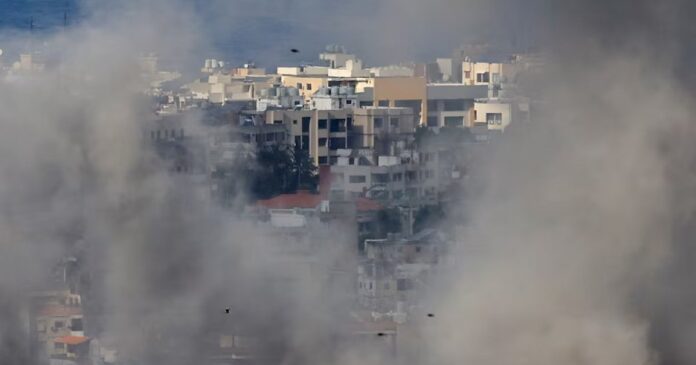Israel and Lebanon are on the verge of finalizing a cease-fire agreement, Israeli officials said. The deal will be presented to the Israeli cabinet for final discussion on Tuesday (November 26). The cease-fire agreement is expected to bring an end to the long-running conflict along the border with southern Lebanon and Israel. British news agency Reuters reported this news.
Under the proposed deal, a 60-day temporary ceasefire could come into effect to end the ongoing conflict between Israel and Iran-backed Lebanese Hezbollah. Terms of the proposed deal include the withdrawal of Israeli forces from southern Lebanon and the end of Hezbollah's presence.
The conflict intensified when the ceasefire agreement was finalised. About 250 rockets were fired at Israel from Lebanon on Sunday, most of which were shot down by Israeli defenses. In response, the Israeli Air Force attacked Hezbollah positions and arsenals in several areas, including Beirut.
According to a Western diplomat, the deal will see the Lebanese army increase its presence in areas vacated by Israel and Hezbollah.
Elias Bou Saab, deputy speaker of Lebanon's parliament, said there were no major obstacles to an agreement. A five-nation committee has been formed to monitor the ceasefire, he told Reuters. The committee will be led by the United States, with France as a member.
Progress towards disagreements and compromises
One of the main obstacles to implementing the agreement was who would be responsible for monitoring the ceasefire. After this was determined, a claim by Israel created new complications. Israel wanted, if Hezbollah returned to southern Lebanon or prepared to attack Israel, they could launch an operation there at any time. Hezbollah and the Lebanese government are unwilling to accept this condition. US mediator Amos Hockstein held lengthy talks with both sides on the issue.
Lebanon said the deal should be limited to the terms of UN Security Council Resolution 1701 after the 2006 war. The proposal calls for the withdrawal of Hezbollah troops and weapons from the Blue Line and the Litani River in southern Lebanon. But Israel complained that the terms of the proposal were never fully implemented.
Political pressure in Israel
The deal has also created pressure in Israel's domestic politics. The country's national security minister, Itamar Ben-Gabir, called the deal a “serious mistake.” He said Hezbollah is now in a weak state, this is a “historic opportunity” to destroy them.
Lebanese authorities have said that more than 3,750 people have been killed and at least 15,600 injured in the conflict that began in October 2023. About 1 million people have been forced to leave their homes. On the other hand, 60,000 people have been displaced due to Hezbollah's attacks in northern Israel.
Israeli police said Sunday's attack damaged several buildings and injured several people. Lebanon's health ministry said 29 people were killed in Israeli airstrikes on Beirut on Saturday.

